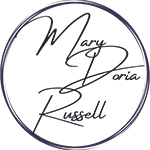Thread of Grace FAQs
Is there a printer’s error on page 407 of A Thread of Grace?
Reread the action just before the end of the chapter. You’re inside Mirella’s head as she experiences the Allied mortar assault on the German troops that have taken over the villa. The kitchen takes a direct hit while she is in the middle of a thought.
What is your opinion of Piux XII?
Italians will tell you, “He had no heart.” I’m not an expert, but my feeling is that he was not an active anti-semite. He simply had no interest in or compassion for the Jews being rounded up and sent to concentration camps by the Nazis. His primary goal during the fascist era was clawing back some of the political power that the Papal States enjoyed prior to the Italian war for reunification in the 1860s. He signed concordats with Mussolini and Hitler in order to retain Vatican control over marriage, divorce and abortion.
He never spoke publicly about the condition of Jews under the Third Reich. There was, I understand, a secret directive distributed to Italian clergy just after the German occupation of Italy began on Sept. 8, 1943. In it, Pius XII instructed them to open their cloisters, seminaries and monasteris to “those who are being unjustly percecuted.” It is to the credit of ordinary Italian nuns, priests and brothers that they interpreted that phrase to mean “Jews.”
Every survivor I interviewed mentioned at least one and often several priests and religious who were instrumental in keeping them out of the hands of the Nazis during of the occupation. The Italians didn’t need a papal encyclical to tell them to be decent.
The Vatican continues to imply that Pius XII did many things secretly to protect Jews. I’m inclined to give credit to others working within the Vatican rather than to Pius XII himself. And if there were any solid evidence of his secret aid to Jews in Vatican archives, why not make it public to gain recognition of this virtuous work? My guess is that no such evidence exists, but it’s just a guess.
Note added later: Click here for a link to a site that collects some primary source material on the action and inaction of the Vatican during the Nazi occupation. Of particular importance to readers of A Thread of Grace is the statement, ” there can be no doubt regarding the sympathy and practical assistance of the clergy in Rome. Monasteries and convents sheltered a very large portion of the Jews who were warned in time and went into hiding.”
What is the origin of the phrase “a thread of grace?”
The phrase is not used in the Hebrew bible, but rather in commentary on the bible. For example, recall the story of Jacob, who worked seven years for the father of the beautiful Rachel, only to find that her sister Leah was substituted as his bride. Leah is damned with faint praise by the commentators, who remark that she had “weak eyes,” although they try to be nice about it and say that she did have “a thread of grace.”
The phrase is also used in a classic dispute between the two Jewish sages Hillel and Shamai. Students come to the sages and ask, “Is it ever permissible to lie? If, for example, we attend a wedding and the bride is ugly, is it permissible to say that she is beautiful?”
Shamai, always the hard-ass, says, “No! It is never permissible to lie! The law is the law!”
Hillel, always more reasonable, says, “Every bride is beautiful on her wedding day. There is always a thread of grace — find it, and praise it.”
The saving of 43,000 Jews in Italy is indeed a thread of grace in the vast tapestry of hatred in Nazi-occupied Europe: a very fine filament indeed, but evidence that it was possible to resist the Final Solution even in the birthplace of fascism, though such resistance required awe-inspiring bravery.
What is your own religious and ethnic background?
I’m the child of what was called “a mixed marriage” in the 1950s. My mother was born and raised in Massachusetts, the descendant of British Puritians who came to America in the 1620s. My father was from the south side of Chicago. His parents were first-generation Italian Catholics from Sicily and Calabria who immigrated in 1904.
Mom’s family opposed the marriage. My father’s family was presumed to be associated with the Mafia, and for New England Protestants in those days, the only thing lower than an Italian Catholic was an Irish Catholic. To be fair, they weren’t far wrong about the Mafia thing. My paternal grandfather did time for armed robbery in the 1930s.
In any case, religion was not important to my parents. I never saw them in church apart from weddings and funerals. I was raised as a nominal Catholic but I left the Church in 1965 for a variety of reasons, trivial and substantive. I was a contented atheist for over 20 years.
When I became a mother in 1985, I wanted my son to be raised in the kind of solid moral and ethical framework that had served me well, though I no longer accepted the theology I was born to. For me, the Incarnation was and is an insuperable barrier to faith.
After eight years of reading, thought and study, I made a formal conversion to Judaism in 1993. The goal of Judaism is, in essence, to raise children who will want to be good, without the bribe of heaven or the threat of hell. It proved to be a wonderful framework for our family.
